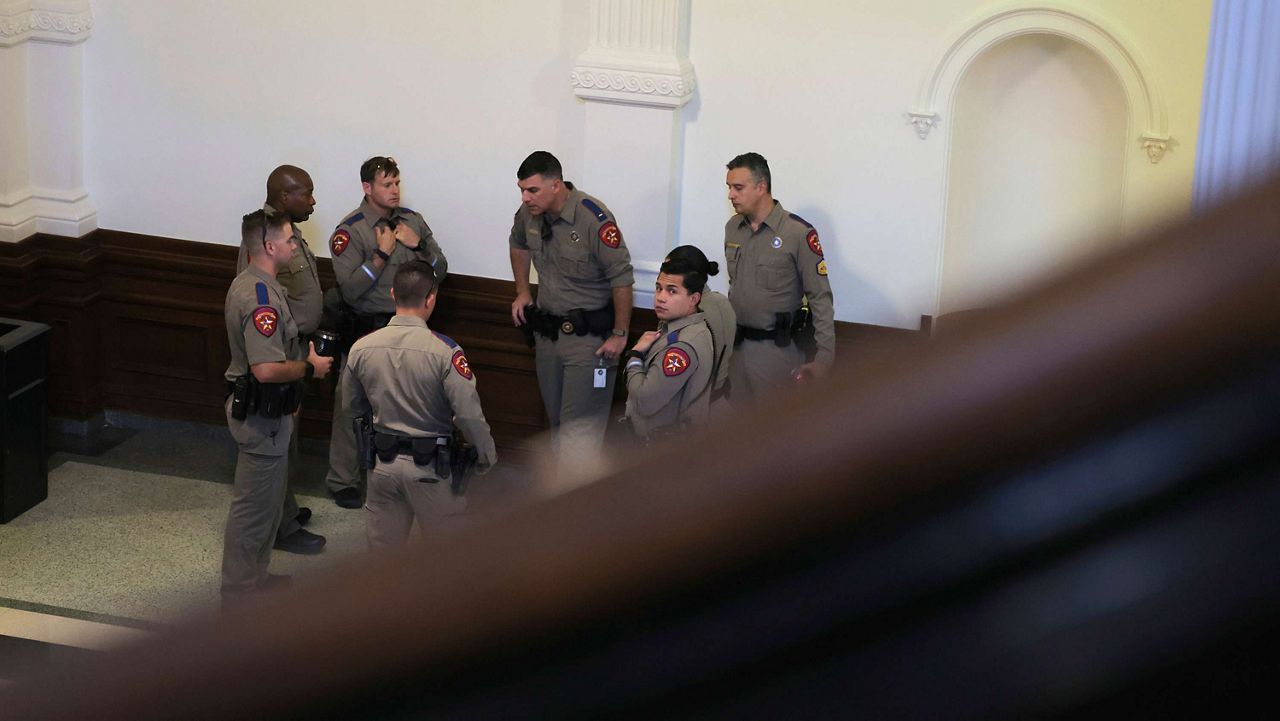AUSTIN, Texas — A state operation to clear out homeless encampments in the capital city is leaving some Austin officials concerned about how plans are being carried out.
On Oct. 21, Gov. Greg Abbott announced that the Texas Department of Public Safety (DPS) and other agencies, like the Texas Department of Transportation (TxDOT) and the Texas State Guard, were removing homeless encampments in the Austin area.
“Texans should not endure public safety risks from homeless encampments and individuals,” said Abbott in his announcement. “Weapons, needles and other debris should not litter the streets of our community, and the State of Texas is taking action. I directed state agencies to address this risk and make Austin safer and cleaner for residents and visitors to live, travel, and conduct business.”
The move aims to enforce Proposition B, a measure passed by Austin voters in 2021 that makes camping in public areas a criminal offense. That same year, House Bill 1925 was passed, which created a statewide ban on public camping.
Some who work for the city, including the mayor, were disappointed.
“Some of what we’re seeing with regard to addressing people living homeless is frankly not how it’s supposed to work,” said Austin Mayor Kirk Watson. “It is not as easy as just saying we’re going to go out and clear an encampment. Empathy is the key word.”
“Safety” is another key word, according to the governor’s office and DPS. Among the 48 encampments and 3,000 pounds of debris cleared, DPS also arrested 31 people for numerous charges.
“Of the 31 taken into custody, 24 people had previous felony arrests for hundreds of crimes such as sexual assault of a child, injuring a child/elderly/disabled individual with intent of bodily injury, human smuggling, assault on a family/household member, aggravated assault with a deadly weapon, aggravated robbery and abandoning/endangering a child, among many others,” stated Sheridan Nolen, the DPS press secretary, in a statement.
Illicit drugs were also confiscated, according to Nolen’s statement, including methamphetamine and cocaine. DPS also says they recovered two stolen vehicles and a firearm.
“We will be fully engaged to make sure that we are making our communities safer,” said Abbott.
Some, like Save Austin Now, a political action committee opposed to Prop Q (a proposed tax increase for Austinites to expand homelessness mitigation, services for crime victims, climate change response and more) stood by the state’s actions.
Save Austin Now spokesperson Matt Mackowiak said, “The simple fact is Austin has moved too slowly to clean up our city from illegal homeless encampments, which harm public seats, public health, tourism and our environment.”
Some officials who work on homelessness in the city say that progress has been much more profound than the state thinks.
“Just last year, the City of Austin cleaned and cleared over 1,500 encampments across the city,” said David Gray, from the city’s homeless strategies and operations office.
Gray noted that while state agencies are often in control of clearing encampments on state property, like highways, this was the first he heard that DPS officials were removing camps within city limits.
He says there is usually outreach to those who are homeless first, giving them a chance to accept any offered services or move to a different location before ultimately being displaced.
“We help enroll them in substance use treatment programs, or job training programs, because if you just close an encampment, without really changing somebody’s situation, all you’re doing is just moving that encampment from one community to the other,” Gray said.
He does not know whether those living in the camps were offered resources or where they moved to.
Abbott says this type of operation could be seen beyond the capital city.
“This is a state law, and I plan to extend this across the entire state,” the governor said. “There are some communities that are stepping up and addressing this proactively, and that’s what we want to see.”

